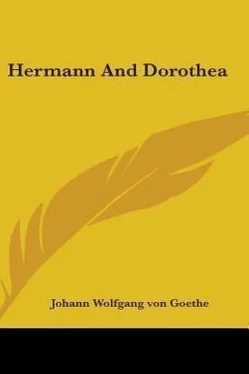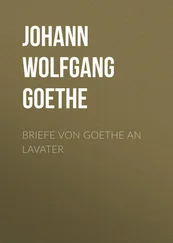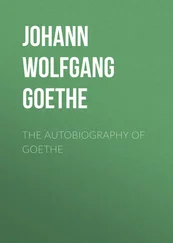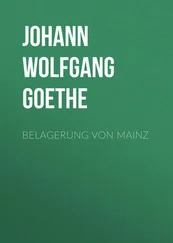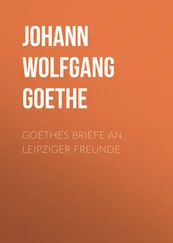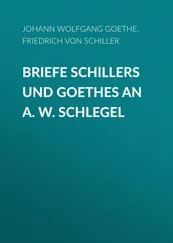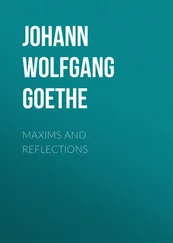There are few modern poems of any country so perfect in their kind as the "Hermann and Dorothea" of Goethe. In clearness of characterization, in unity of tone, in the adjustment of background and foreground, in the conduct of the narrative, it conforms admirably to the strict canons of art; yet it preserves a freshness and spontaneity in its emotional appeal that are rare in works of so classical a perfection in form.
The basis of the poem is a historical incident. In the year 1731 the Archbishop of Salzburg drove out of his diocese a thousand Protestants, who took refuge in South Germany, and among whom was a girl who became the bride of the son of a rich burgher. The occasion of the girl's exile was changed by Goethe to more recent times, and in the poem she is represented as a German from the west bank of the Rhine fleeing from the turmoil caused by the French Revolution. The political element is not a mere background, but is woven into the plot with consummate skill, being used, at one point, for example, in the characterization of Dorothea, who before the time of her appearance in the poem has been deprived of her first betrothed by the guillotine; and, at another, in furnishing a telling contrast between the revolutionary uproar in France and the settled peace of the German village.
The characters of the father and the minister Goethe took over from the original incident, the mother he invented, and the apothecary he made to stand for a group of friends. But all of these persons, as well as the two lovers, are recreated, and this so skillfully that while they are made notably familiar to us as individuals, they are no less significant as permanent types of human nature. The hexameter measure which he employed, and which is retained in the present translation, he handled with such charm that it has since seemed the natural verse for the domestic idyl—witness the obvious imitation of this, as of other features of the poem, in Longfellow's "Evangeline."
Taken as a whole, with its beauty of form, its sentiment, tender yet restrained, and the compelling pathos of its story, "Hermann and Dorothea" appeals to a wider public than perhaps any other product of its author.
"Truly, I never have seen the market and street so deserted!
How as if it were swept looks the town, or had perished! Not fifty
Are there, methinks, of all our inhabitants in it remaining,
What will not curiosity do! here is every one running,
Hurrying to gaze on the sad procession of pitiful exiles.
Fully a league it must be to the causeway they have to pass over,
Yet all are hurrying down in the dusty heat of the noonday.
I, in good sooth, would not stir from my place to witness the sorrows
Borne by good, fugitive people, who now, with their rescued possessions,
Driven, alas! from beyond the Rhine, their beautiful country,
Over to us are coming, and through the prosperous corner
Roam of this our luxuriant valley, and traverse its windings.
Well hast thou done, good wife, our son in thus kindly dispatching,
Laden with something to eat and to drink, and with store of old linen,
'Mongst the poor folk to distribute; for giving belongs to the wealthy.
How the youth drives, to be sure! What control he has over the horses!
Makes not our carriage a handsome appearance,—the new one? With comfort,
Four could be seated within, with a place on the box for the coachman.
This time, he drove by himself. How lightly it rolled round the corner!"
Thus, as he sat at his ease in the porch of his house on the market,
Unto his wife was speaking mine host of the Golden Lion.
Thereupon answered and said the prudent, intelligent housewife:
"Father, I am not inclined to be giving away my old linen:
Since it serves many a purpose; and cannot be purchased for money,
When we may want it. To–day, however, I gave, and with pleasure,
Many a piece that was better, indeed, in shirts and in bed–clothes;
For I was told of the aged and children who had to go naked.
But wilt thou pardon me, father? thy wardrobe has also been plundered.
And, in especial, the wrapper that has the East–Indian flowers,
Made of the finest of chintz, and lined with delicate flannel,
Gave I away: it was thin and old, and quite out of the fashion."
Thereupon answered and said, with a smile, the excellent landlord:
"Faith! I am sorry to lose it, my good old calico wrapper,
Real East–Indian stuff: I never shall get such another.
Well, I had given up wearing it: nowadays, custom compels us
Always to go in surtout, and never appear but in jacket;
Always to have on our boots; forbidden are night–cap and slippers."
"See!" interrupted the wife; "even now some are yonder returning,
Who have beheld the procession: it must, then, already be over.
Look at the dust on their shoes! and see how their faces are glowing!
Every one carries his kerchief, and with it is wiping the sweat off.
Not for a sight like that would I run so far and so suffer,
Through such a heat; in sooth, enough shall I have in the telling."
Thereupon answered and said, with emphasis, thus, the good father:
"Rarely does weather like this attend such a harvest as this is.
We shall be bringing our grain in dry, as the hay was before it.
Not the least cloud to be seen, so perfectly clear is the heaven;
And, with delicious coolness, the wind blows in from the eastward.
That is the weather to last! over–ripe are the cornfields already;
We shall begin on the morrow to gather our copious harvest."
Constantly, while he thus spoke, the crowds of men and of women
Grew, who their homeward way were over the market–place wending;
And, with the rest, there also returned, his daughters beside him,
Back to his modernized house on the opposite side of the market,
Foremost merchant of all the town, their opulent neighbor,
Rapidly driving his open barouche,—it was builded in Landau.
Lively now grew the streets, for the city was handsomely peopled.
Many a trade was therein carried on, and large manufactures.
Under their doorway thus the affectionate couple were sitting,
Pleasing themselves with many remarks on the wandering people.
Finally broke in, however, the worthy housewife, exclaiming:
"Yonder our pastor, see! is hitherward coming, and with him
Comes our neighbor the doctor, so they shall every thing tell us;
All they have witnessed abroad, and which 'tis a sorrow to look on."
Cordially then the two men drew nigh, and saluted the couple;
Sat themselves down on the benches of wood that were placed in the doorway,
Shaking the dust from their feet, and fanning themselves with their kerchiefs.
Then was the doctor, as soon as exchanged were the mutual greetings,
First to begin, and said, almost in a tone of vexation:
"Such is mankind, forsooth! and one man is just like another,
Liking to gape and to stare when ill–luck has befallen his neighbor.
Every one hurries to look at the flames, as they soar in destruction;
Runs to behold the poor culprit, to execution conducted:
Now all are sallying forth to gaze on the need of these exiles,
Nor is there one who considers that he, by a similar fortune,
May, in the future, if not indeed next, be likewise o'ertaken.
Levity not to be pardoned, I deem; yet it lies in man's nature."
Thereupon answered and said the noble, intelligent pastor;
Ornament he of the town, still young, in the prime of his manhood.
He was acquainted with life,—with the needs of his hearers acquainted;
Deeply imbued he was with the Holy Scriptures' importance,
As they reveal man's destiny to us, and man's disposition;
